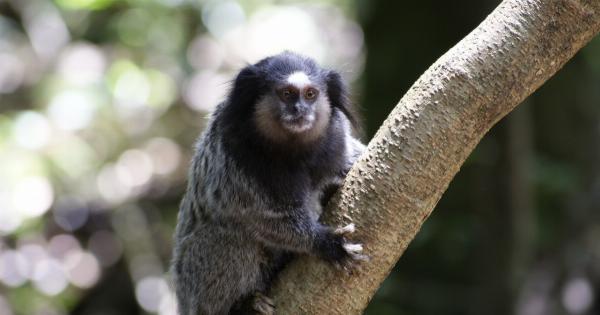Portugal is currently facing a concerning outbreak of monkey infections, with ten new cases being reported recently. This wave of infections has raised alarm bells among scientists and the general public alike.
With the number of infected monkeys increasing, it becomes crucial to understand the causes, symptoms, and preventive measures against such infections.
Causes of Monkey Infections in Portugal
The exact cause of the monkey infections in Portugal is still under investigation. However, scientists believe that these infections could be a result of various factors, including:.
- Transmission from other infected animals: Monkeys can contract infections from other animals they come into contact with, such as rodents or insects.
- Poor hygiene practices: Unsanitary living conditions and inadequate hygiene practices can create an environment conducive to the spread of infections.
- Contaminated food and water: Monkeys may consume contaminated food or water sources, leading to the transmission of infectious agents.
Understanding the specific cause is crucial in formulating effective preventive measures to control and contain the outbreak.
Symptoms of Monkey Infections
The infected monkeys in Portugal are displaying a range of symptoms, which can help in early identification and treatment. Common symptoms observed in infected primates include:.
- Fever: Elevated body temperature is a typical sign of infection.
- Lethargy: Infected monkeys may appear weak, tired, and disinterested in their surroundings.
- Respiratory distress: Coughing, sneezing, and difficulty breathing are indicative of respiratory infections.
- Gastrointestinal issues: Diarrhea, vomiting, and loss of appetite are common signs of digestive tract infections.
- Skin abnormalities: Infected monkeys may develop rashes, sores, or lesions on their skin.
It is important to note that these symptoms may vary from one infected monkey to another. Some monkeys may display only mild symptoms, while others may experience more severe manifestations.
Preventive Measures against Monkey Infections
The following preventive measures can help curb the spread of monkey infections in Portugal:.
- Hygiene practices: Maintaining clean living conditions and practicing good hygiene, such as regular handwashing and cleaning of enclosures, can minimize the risk of infections.
- Quarantine protocols: Isolating newly acquired monkeys and conducting thorough health checks can prevent the introduction of infections into primate populations.
- Vaccinations: Developing and administering effective vaccines specific to the infections affecting monkeys can provide immunity and reduce the prevalence of infections.
- Proper waste management: Ensuring the proper disposal of waste materials from monkey enclosures can prevent contamination and the spread of infectious agents.
- Regular veterinary check-ups: Regular visits from qualified veterinarians can help monitor the health of monkeys and detect infections at an early stage.
Implementing these preventive measures, along with ongoing research and surveillance, can aid in the control and eradication of the monkey infections in Portugal.
Conclusion
The outbreak of monkey infections in Portugal, with ten new reported cases, has become a cause for concern. Identifying the causes, recognizing the symptoms, and implementing preventive measures are essential in combating the spread of these infections.
With ongoing research and collaboration between scientists, veterinarians, and the relevant authorities, it is hoped that the outbreak can be effectively controlled and the infected monkeys can receive appropriate care and treatment.































